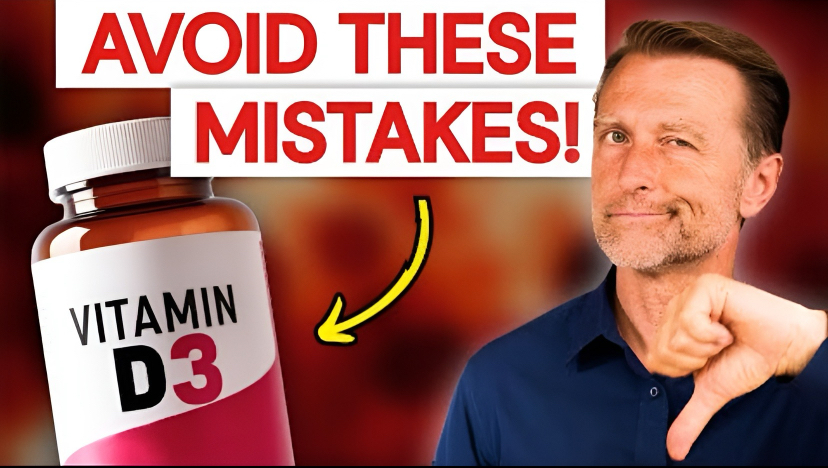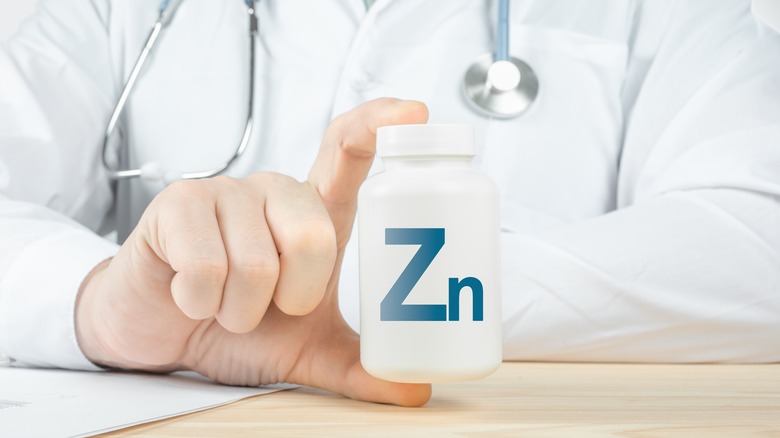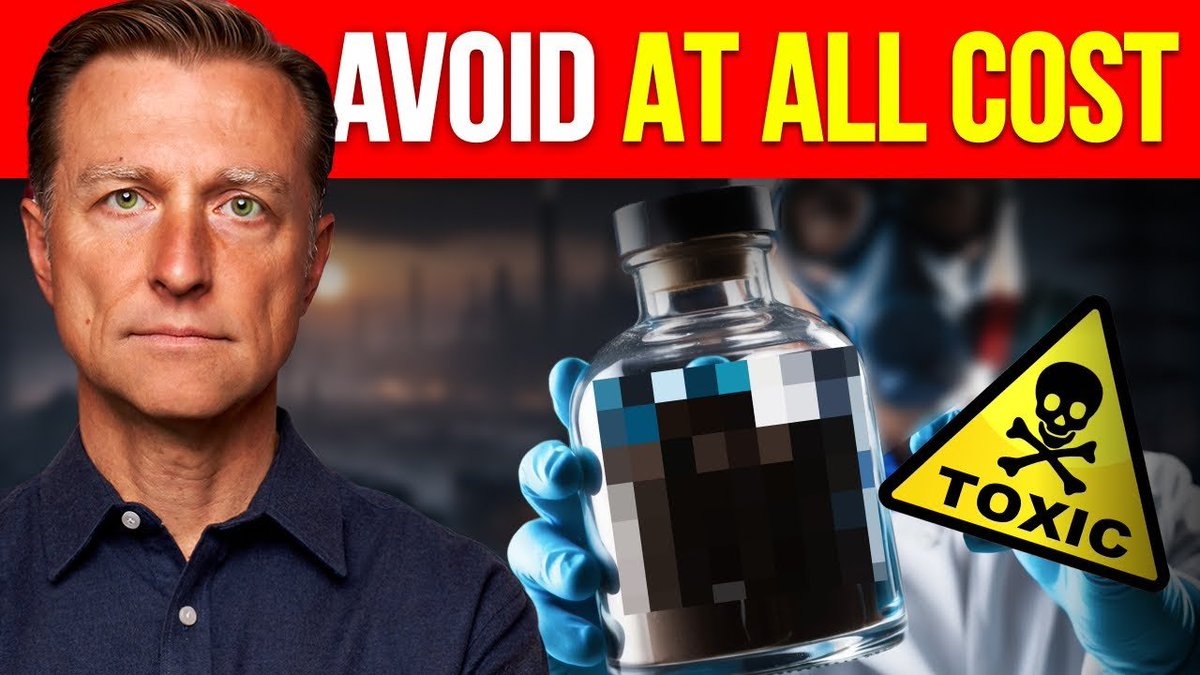The Most Common Mistakes People Make When Taking Vitamin D
Millions take vitamin D—yet remain deficient.
Why? Because they make key MISTAKES that block vitamin D from being absorbed or used properly.
Here are the most common errors—and how to fix them.
Let’s break it down:
Millions take vitamin D—yet remain deficient.
Why? Because they make key MISTAKES that block vitamin D from being absorbed or used properly.
Here are the most common errors—and how to fix them.
Let’s break it down:

Vitamin D3 influences over 10% of your genetic expression.
It plays a vital role in immunity, hormone balance, mood regulation, and calcium metabolism.
But without the right supporting nutrients and protocols, it can do more harm than good.
Here are 7 common mistakes to avoid:
It plays a vital role in immunity, hormone balance, mood regulation, and calcium metabolism.
But without the right supporting nutrients and protocols, it can do more harm than good.
Here are 7 common mistakes to avoid:

1/ Taking vitamin D without magnesium
Magnesium is required to activate and convert vitamin D into its usable form in the body.
Without sufficient magnesium, your D3 supplement remains inactive—regardless of the dose.
But not all magnesium is equal—so which type works best?
Magnesium is required to activate and convert vitamin D into its usable form in the body.
Without sufficient magnesium, your D3 supplement remains inactive—regardless of the dose.
But not all magnesium is equal—so which type works best?
2/ Using the wrong magnesium
Magnesium oxide absorbs poorly—just 4%—and often leads to diarrhea.
For better results, choose:
• Magnesium glycinate (ideal for sleep)
• Magnesium citrate (helps digestion)
Now, let’s look at the next common mistake people make with vitamin D…
Magnesium oxide absorbs poorly—just 4%—and often leads to diarrhea.
For better results, choose:
• Magnesium glycinate (ideal for sleep)
• Magnesium citrate (helps digestion)
Now, let’s look at the next common mistake people make with vitamin D…
3/ Skipping vitamin K2
Vitamin D helps absorb calcium, but K2 directs it to the right places.
Without K2, calcium may build up in arteries and soft tissue.
Use the MK-7 form of K2: 100mcg per 10,000 IU of D3.
Now, let’s look at the next cofactor people often ignore…
Vitamin D helps absorb calcium, but K2 directs it to the right places.
Without K2, calcium may build up in arteries and soft tissue.
Use the MK-7 form of K2: 100mcg per 10,000 IU of D3.
Now, let’s look at the next cofactor people often ignore…
4/ Ignoring zinc
Zinc is essential for converting cholesterol into active vitamin D.
It also supports immune function, sex hormones, and enzyme activity.
For every 10,000 IU of D3, take 20mg of zinc for optimal effectiveness.
But dosage matters too…
Zinc is essential for converting cholesterol into active vitamin D.
It also supports immune function, sex hormones, and enzyme activity.
For every 10,000 IU of D3, take 20mg of zinc for optimal effectiveness.
But dosage matters too…

5/ Taking too little vitamin D3
The standard 600–800 IU/day? Far too low to be effective.
Most people need 6000–10,000 IU daily for real benefits.
Experts like Dr. Michael Holick and Dr. Bruce Hollis both recommend 10,000 IU/day.
The standard 600–800 IU/day? Far too low to be effective.
Most people need 6000–10,000 IU daily for real benefits.
Experts like Dr. Michael Holick and Dr. Bruce Hollis both recommend 10,000 IU/day.
6/ Choosing D2 instead of D3
Vitamin D2 is poorly absorbed, less stable, and quickly broken down in the body.
Always choose D3 (cholecalciferol)—it’s more bioavailable and matches the form your body makes from sunlight.
Now, let’s address the final mistake…
Vitamin D2 is poorly absorbed, less stable, and quickly broken down in the body.
Always choose D3 (cholecalciferol)—it’s more bioavailable and matches the form your body makes from sunlight.
Now, let’s address the final mistake…

7/ Improper testing and supplement timing
To ensure accurate vitamin D levels, stop supplementation 3 days before testing.
Blood D3 levels don’t reflect the active vitamin D inside cells, so explore other assessment methods.
Now you can optimize your vitamin D intake!
To ensure accurate vitamin D levels, stop supplementation 3 days before testing.
Blood D3 levels don’t reflect the active vitamin D inside cells, so explore other assessment methods.
Now you can optimize your vitamin D intake!

To dive deeper into vitamin D and its impact, check out this insightful interview with Dr. Bruce Hollis.
We shared expert insights on the science behind vitamin D, its effects on your health, and how to optimize your intake.
We shared expert insights on the science behind vitamin D, its effects on your health, and how to optimize your intake.
A bit about me:
I am the creator of Healthy Keto® & Intermittent Fasting protocols.
I educate millions on nutrition and wellness, empowering over 100M people to make healthier choices.
Follow me for evidence-based insights to improve your health and vitality.
I am the creator of Healthy Keto® & Intermittent Fasting protocols.
I educate millions on nutrition and wellness, empowering over 100M people to make healthier choices.
Follow me for evidence-based insights to improve your health and vitality.

Thank you for reading!
What is ONE thing you learned from this thread? Comment below...
And follow me @dr_ericberg for more evidence-based insights to improve your health and longevity.
What is ONE thing you learned from this thread? Comment below...
And follow me @dr_ericberg for more evidence-based insights to improve your health and longevity.
• • •
Missing some Tweet in this thread? You can try to
force a refresh








